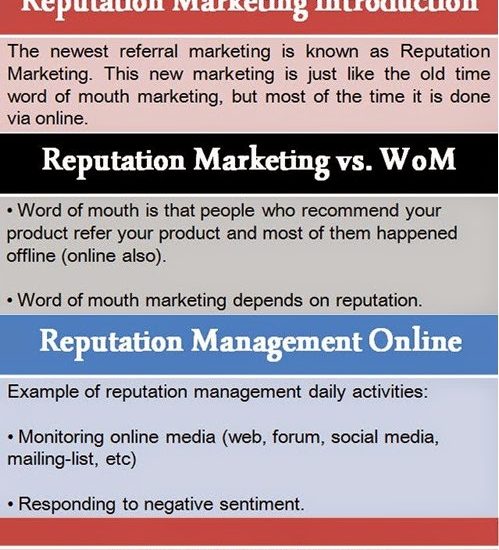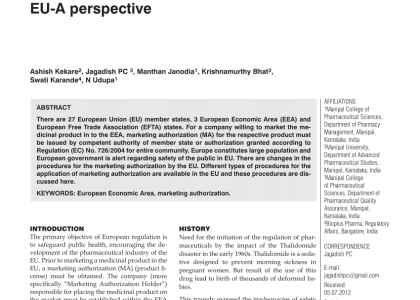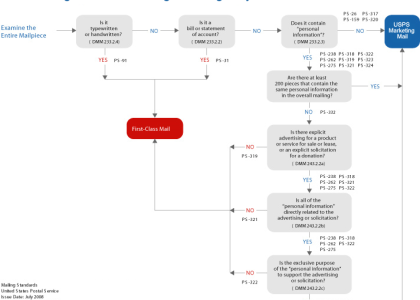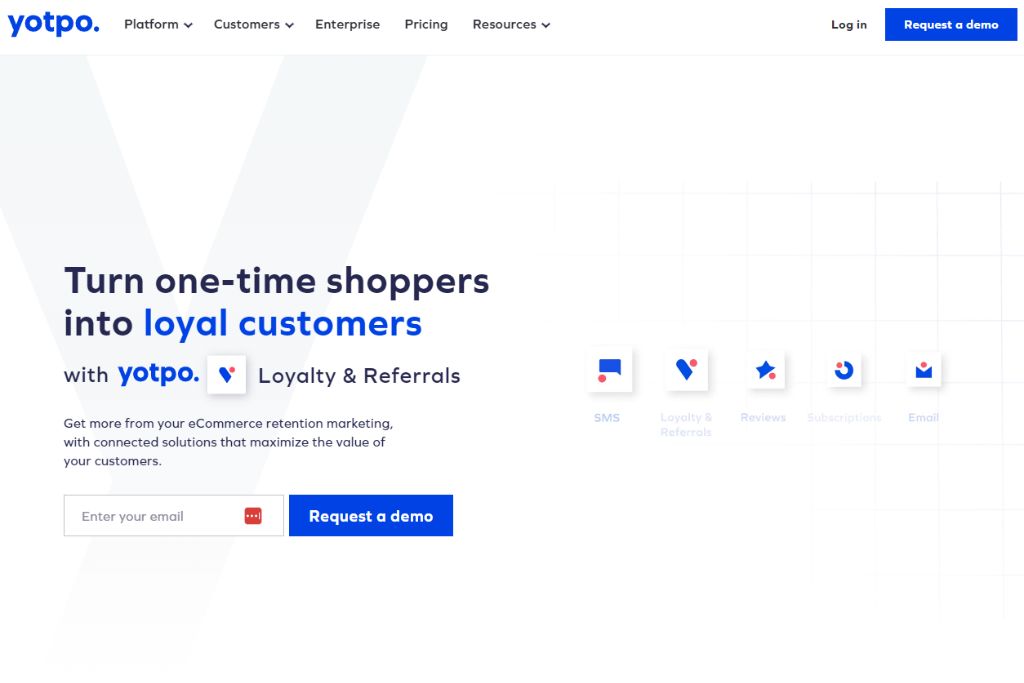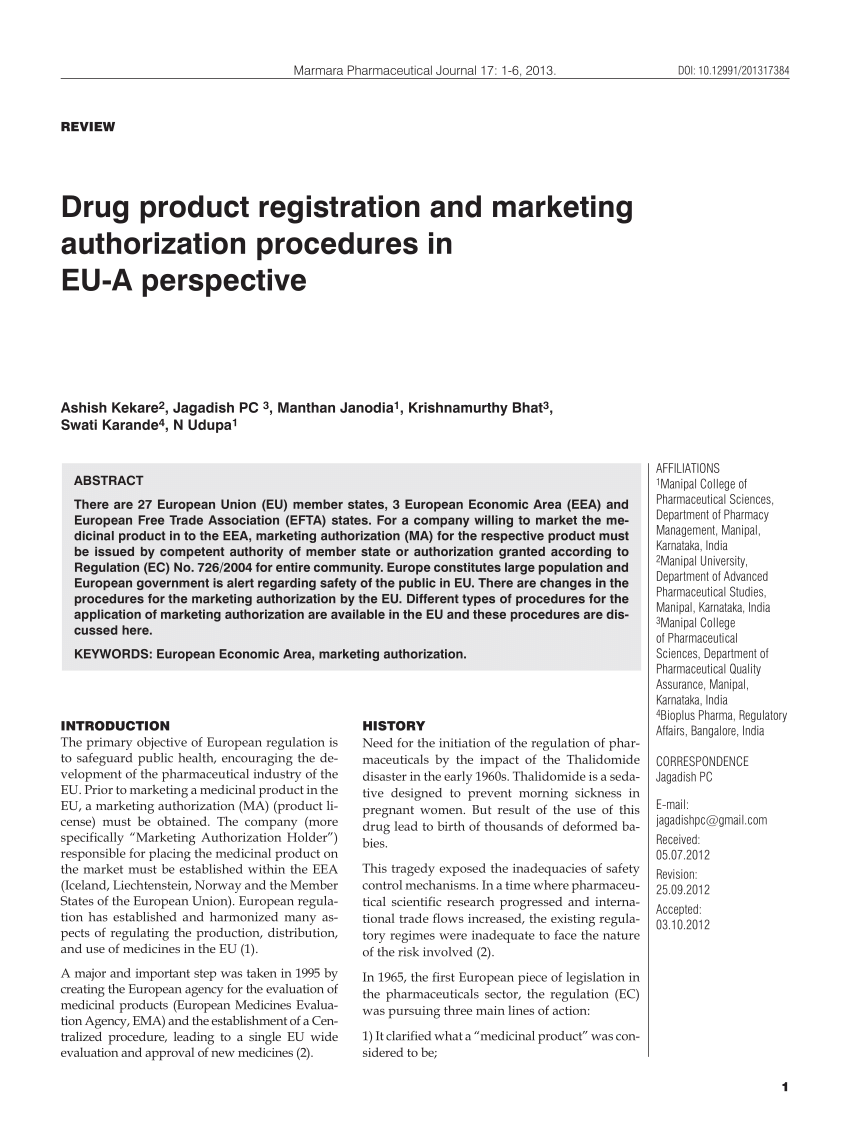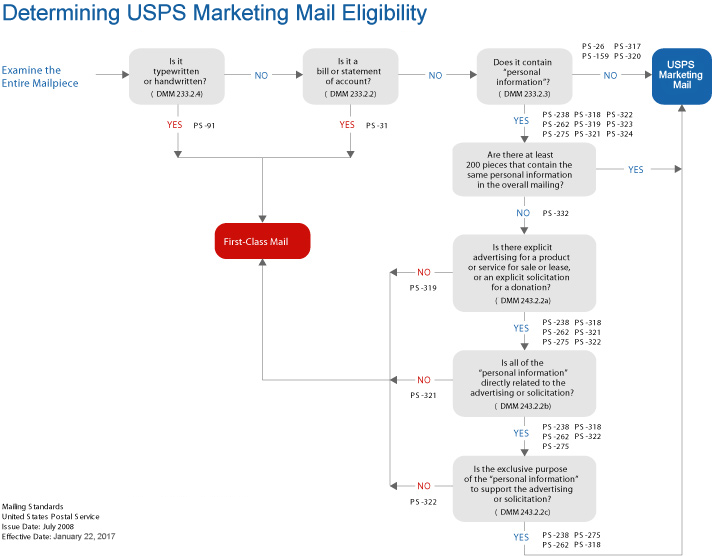Have you ever wondered why particular businesses stand out in the crowded marketplace while others struggle for recognition? Many factors can contribute to this disparity, but a critical player that often goes unnoticed is known as reputation marketing. This discipline goes beyond the simplistic perception of conventional marketing; instead, it operates on the understanding of a customer’s perception of your business, shaping and capitalizing on it.
The concept of reputation marketing might seem elusive, but its function and importance are undeniably clear when broken down to its core. Essentially, reputation marketing can be viewed as a symbiosis of brand reputation management and marketing strategies – a synergetic process where both elements enhance each other’s impact.
With the increasingly competitive business environment, reputation marketing has swiftly emerged as an indispensable tool for companies, regardless of their size or industry. Furthermore, the advent of the digital age has magnified its importance even more, considering the vast potential of online databases that can readily make or break a brand’s image.
Through this article, we aim to demystify the underlying principles and strategies associated with reputation marketing. We’ll delve into a detailed understanding of its meaning, explore why it’s pivotal for businesses to incorporate it into their operational framework, and, ultimately, unravel the key elements of how it works.
Understanding the Concept of Reputation Marketing
Reputation marketing is a crucial element in successful business operations. To understand its importance, we need to first have a clear definition of it. Deemed as the strategic approach to managing and moulding a business’ reputation, reputation marketing goes hand-in-hand with branding and digital marketing strategies to create a positive public perception.
It is focused on nurturing and promoting a positive online image for a company. This involves a combination of multiple strategies that includes digital PR (public relations), content creation, social media marketing, online review management and more. The end goal of all these strategies is to create and maintain apositive company image.
It is crucial not to confuse reputation marketing with reputation management. The latter is mainly a reactive method that usually applies during times of crisis while the former involves a proactive, strategic and holistic approach towards managing a business’ reputation and enhancing its perceived value in the market.
- Reputation marketing aims to spread positive news about the company and its products or services through various online platforms.
- The process involves taking control of what information represents the company online, with an emphasis on creating, promoting and capitalising on positive content.
- Through effective reputation marketing, businesses can improve customer trust, influence customer purchasing decisions, stand out from competitors and ultimately increase profitability.
Every interaction that a company has, whether it’s with customers, employees or partners can impact its reputation greatly. This is why reputation marketing is so important, it allows businesses to take control over how they are perceived, and thus significantly influence their success.
The Evolution of Marketing for Reputation
Marketing aimed at building a strong reputation has a rich history which has evolved alongside advancements in technology and changed paradigms in the business world. It is rooted in the ancient practice of word-of-mouth marketing, where discussions about products and services were primarily face-to-face. Reputation was key for success in these early market times, just as it is now.
With the advent and rise of print media, reputation marketing got a major boost. Newspapers, magazines, and other kinds of print media served as platforms for brands to build a good public image and reputation. Companies crafted intricate advertisements and public relations materials to shape their image in the minds of consumers.
The onset of the digital age further revolutionized the face of reputation promotion. The internet brought about digital marketing channels, and now, especially with the advent of social media, consumers have more power to shape the image of a brand. They can share their reviews and experiences with a wider audience online, thereby influencing a company’s reputation positively or negatively based on the shared experiences.
Today’s reputation-centric marketing entails active listening to what customers are saying, engaging with them on various platforms, and investing time and effort in maintaining a clean online profile that exudes trust. Furthermore, advanced tools like reputation management software have come into the picture, aiding businesses in monitoring and improving their online image continuously.
In conclusion, the historical journey of marketing with a focus on reputation has seen many transformations, from basic word-of-mouth promotions in local markets to sophisticated digital strategies using advanced tools. The core remains the same, highlighting the importance of maintaining a positive image in the minds of consumers to sustain successful business operations.
The Significance of a Business’s Standing
In the current business landscape, an exceptional standing is no longer a nice-to-have; it is a crucial part of the conversation around a business’s longevity and success. A company’s standing or reputation is formed by a multitude of factors – customer feedback, online reviews, social media presence, among many others.
Why should businesses pay attention to their reputations? Your business’s image significantly affects your bottom line. When a potential customer begins their search for services or products, your good name introduces you before you have a chance to speak on your behalf.
However, it’s more than just public perception. Entities with good reputations have been shown to enjoy increased customer loyalty, which can then translate into repeat business and referrals. In an age where word-of-mouth is so powerful, reputation is everything.
Key Factors That Shape a Business’s Reputation
- Customer Service: This is one of the most important factors when it comes to creating a strong reputation. Businesses that consistently deliver excellent customer service are more likely to earn a positive reputation.
- Quality of Products/Services: If a business consistently offers high-quality products or impeccable services, it can establish a solid reputation amongst its clientele and wider audience.
- Online Presence: In today’s digital age, a business’s online reputation is increasingly important. Negative online reviews and poor social media interactions can significantly damage a business’s reputation.
Indeed, good reputation can secure your business’s place in the market, foster trust from customers, and open up doors for expansion and collaboration. Thus, every business should prioritize nurturing and protecting its reputation in all of its operations.
The Impact of Reputation Management on Customer Choices
Reputation management significantly impacts how consumers view a business and informs their purchasing decisions. They rely heavily on the impression of a company, formed by online reviews and rating systems, which has increasingly become integral to their decision-making process. This highlights the importance of robust reputation management practices in persuasive marketing.
With the rise of digital platforms, it is easier for consumers to study product or service reviews before making a choice. The reputation of a company is mainly decided by what existing customers say, and a positive reputation can encourage potential customers to trust their products or services. In contrast, a poor reputation can turn potential customers away, deterring them from even considering the products or services.
Key Factors of Reputation Management influencing Customer Perception
- Transparency: Companies that are transparent in their operations and interactions leave a positive impression on their customers, encouraging trust and loyalty.
- Social Proof: Social verification or proof is a powerful reputation management tool. Customers often check reviews and ratings before making a purchase decision. Positive reviews push them towards a purchase, while negative ones discourage them.
- Customer service: The quality of customer service directly reflects the value a company places on its customers. Exceptional customer service improves customer retention and encourages positive reviews.
- Responsiveness: In our digital age, businesses are expected to respond promptly to customer queries or complaints. Immediate and satisfactory response improves brand image, increases customer satisfaction, and reduces negative feedback.
In conclusion, the perceived reputation of a business significantly impacts the choices prospective consumers make. Positive reputation management practices, based on transparency, social proof, outstanding customer service and prompt responsiveness, contribute to establishing trust between a business and its customers. Adopting these practices can lead businesses to higher customer loyalty, better brand recognition, and increased sales.
Contrasting Reputation Marketing and Reputation Administration
Comparing reputation marketing with reputation administration can be likened to the distinction between being proactive versus reactive in a company’s approach towards its image and relationship with its consumers.
Understanding Reputation Marketing
Reputation marketing, to put it simply, is about building a positive brand image proactively. It involves enhancing the company’s standing by actively promoting positive reviews, feedback, and testimonials to improve the perceived value of the brand. The primary objective is to reflect a favorable image that would attract potential customers and retain existing ones. This approach entails:
- Generating and promoting positive customer reviews.
- Utilization of social media to interact positively with consumers and instill brand affinity.
- Involvement in constructive community actions or philanthropic efforts.
Demystifying Reputation Administration
On the other hand, reputation management or administration is more of a reactive approach. It’s about handling negative situations, and controlling information that could potentially harm the brand’s reputation. This may consist of addressing negative reviews, dispelling circulating rumors about the company, or managing a public relations crisis. Reputation management often includes:
- Monitoring and responding to negative reviews or comments.
- Implementing SEO strategies to suppress damaging information on search engine results.
- Developing a solid crisis communication plan.
In conclusion, reputation marketing is a preemptive measure to build and promote a positive brand image, while reputation management is more of a defensive strategy to safeguard and, if necessary, rebuild a tarnished image. However, both are critical components of a holistic reputation strategy and should be implemented simultaneously for optimal results.
Formulating a Robust Approach for Result-oriented Reputation Promotion
A solid, effective reputation promotion strategy is integral for any business aiming to thrive in this era of digital dominance. Businesses need to not only manage their public standing, but also to utilize it as a tool to attract and retain customers.
Initially, identifying the existing reputation sets the right footing for any reputation marketing strategy. Businesses need to regularly monitor social media, customer reviews, press releases, amongst other platforms to gauge public perception. Remember, the goal here isn’t to just address the negatives; it’s equally important to amplify positive sentiment.
Raising visibility is the next integral step. This can be achieved by enlightening customers about the business values, social responsibilities, and strengths. Active participation in social causes, regular press releases about new endeavours, and open dialogue with stakeholders can work wonders.
Maintaining a positive digital footprint
Maintaining a positive and engaging digital footprint is crucial. Regularly updating online platforms with high-quality, engaging content keeps the audience interested and informed, thereby boosting a brand’s image.
A crucial part of this strategy is fast and empathetic response to customer feedback – both praise and criticism. This shows that a company is truly interested in the thoughts and opinions of its customers.
Finally, measuring the impact of these strategies is an ongoing process. Regular analysis using customer surveys, review analysis, and social media monitoring tools can help determine which strategies are working and which need tweaks.
- Identifying the Existing Reputation
- Raising visibility
- Maintaining Positive Digital Footprint
- Fast and Empathetic Response
- Regular Analysis and Tweaks
All these steps together, no doubt, will help in crafting a result-oriented strategy for effective reputation promotion. Remember, there’s no one-size-fits-all strategy. It’s all about finding what works best for your business and your customers.
How Digital Mediums Contribute to Managing Business Reputation
The modern business climate has changed dramatically with the advent of online platforms, making reputation marketing an important aspect for any brand. Vital to reputation marketing is digital channels which play a crucial role in shaping and maintaining a company’s public image. Understanding the part that these electronic platforms play in this context can greatly help businesses in their marketing strategies.
Digital platforms offer direct communication with customers
A key reason digital channels are substantial in reputation marketing is their ability to facilitate direct interaction with customers. Social media platforms like Facebook, Twitter, and Instagram allow businesses to respond to customer inquiries, complaints, and comments in real time. This interaction not only boosts customer satisfaction, but significantly impacts the company’s reputation positively.
Round-the-clock availability
Another remarkable feature of digital channels is their ability to provide 24/7 availability. Customers from around the globe can access information about your company, products, or services at any time of the day or night. This availability makes a company seem reliable and devoted to customer needs, ultimately enhancing its reputation.
Other ways digital channels contribute to reputation marketing
- Digital platforms foster transparency: Public interaction on online channels keeps businesses more accountable for their actions, promoting transparency and honesty which are crucial for a good reputation.
- Online platforms allow for reputation monitoring: The Internet provides numerous tools and utilities for businesses to monitor and manage online chatter about their brand, helping them to promptly address any potential reputation issues.
- Digital content influences reputation: A company’s online content, such as blogs, web articles, and social media posts, can help shape their reputation. Quality content establishes a brand as an authority in its industry, positively affecting its image.
In essence, digital channels provide an invaluable platform for businesses to engage with their audience, build trust, and craft a positive brand image. They play an instrumental role in reputation marketing, helping companies not just to portray a positive image, but also to strengthen their relationship with customers. Therefore, integrating digital platforms into a business strategy is essential for reputation management.
Essential Instruments and Information for Success in Reputation Marketing
Reputation marketing is an evolving discipline, requiring constant information and tools. In building your reputation marketing strategy, it’s important to access the latest tools and resources effectively managing, monitoring, and improving your business reputation.
Software for Monitoring Your Brand’s Reputation
Implementing software tools dedicated to reputation monitoring can be very helpful. These digital instruments are designed to track online discussions about your brand and alert you whenever your company is mentioned. This allows for immediate response, handling any necessary feedback or issues swiftly and efficiently. Examples of these resources include HubSpot, Hootsuite and Brand24.
Reputation Management Platforms
Investing in reputation management platforms is another essential step in effective reputation marketing. These platforms provide you with a centralized location where you can analyze data, respond to reviews, and interact with customers. BrightLocal and Podium are two commonly used platforms that offer this service. They provide businesses the ability to manage reviews across a multitude of platforms like Google, Facebook, and Yelp, among others, ensuring brand consistency.
Education and Training
Equally important are educational resources. Seminars, webinars, online tutorials, and articles are all excellent resources to stay updated and knowledgeable about reputation marketing. They offer valuable insights into industry trends, strategies, and best practices that can help businesses leverage their reputation to gain and retain customers. Websites like Udemy, Coursera, and LinkedIn Learning offer courses and certifications in reputation marketing.
- Automated tools for review and feedback management
- Social media listening tools for real-time brand mentions
- Research resources that offer insight into customer opinions and expectations
In conclusion, with the array of available tools and resources, reputation marketing is quickly becoming a key component of a successful business strategy. By investing in these resources, businesses will not only understand their standing with their customers but also learn how to continuously improve their reputation and attract more potential customers.
An Examination of Stellar Practices in Marketing through Reputation
There have been numerous cases where businesses have gained an immense advantage by investing in marketing strategies focused on reputation. These instances elucidate the power and potential of this marketing facet.
Case Study 1: Jonson & Jonson’s Tylenol Crisis
Johnson & Johnson faced a tremendous reputation disaster in 1982 when seven people in Chicago died after consuming Tylenol capsules tampered with cyanide. Turning to an effective reputation management strategy, the company put consumer safety above financial implications. They immediately pulled approximately 31 million bottles of Tylenol off the shelves, equating to a loss of more than $100 million. Furthermore, they proactively engaged with the media and public and introduced tamper-resistant packaging, setting a new standard in the pharmaceutical industry. This crisis resolution strategy not only restored the damaged reputation but dramatically increased consumer trust in Johnson & Johnson.
Case Study 2: Starbucks’ Racial Bias Training
In April 2018, Starbucks evoked public outcry when two African-American men were unlawfully arrested at one of their Philadelphia shops. Acknowledging the reputational damage, Starbucks ensured that consistent, company-wide sensitivity training would occur. They closed over 8,000 stores for a day to conduct racial bias training, making it clear to the public and their staff that they prioritized equality and inclusivity over profitability. This immediate and solid action helped Starbucks repair their public image and highlight their commitment to social issues.
Case Study 3: Lego’s Green Transformation
After facing criticism for its environmental impact, Lego demonstrated how effective reputation marketing strategy can convert a potential downside into a strengthening factor. Lego pledged to invest $150 million in sustainable production research, aiming to replace its plastic bricks with sustainable alternatives by 2030. Lego also partnered with the World Wildlife Fund to reduce its carbon dioxide emissions, thus amplifying their commitment to environmental sustainability. This move by Lego not only strengthened their reputation but has also brought in a new, more conscious, group of consumers aligned with their environmental values.
In conclusion, these instances underline the immense power of reputation marketing strategies. They show how businesses can transform crises into opportunities, building trust and positively affecting their bottom line.
Navigating the Obstacles in Enhancing Brand Credibility and Ways to Triumph Over Them
Implementing a successful strategy to enhance a organization’s image and credibility, usually referred to as reputation marketing, often faces numerous hurdles. These challenges can deter companies from effectively establishing their businesses as reliable and trusted within their industry. However, with the right approach and appropriate strategies, overcoming these hurdles is indeed achievable.
Defining and Quantifying Reputation
One of the prominent issues is identifying and measuring reputation. Unlike other aspects such as sales or revenue, reputation is intangible and subjective, making it difficult to effectively evaluate. Various factors such as customer feedback, public perception, and online reviews contribute towards forming a reputation.
A solution to tackle this challenge is by utilizing digital tools and resources. From customer reviews to social media comments, these digital assets offer invaluable data which helps in gauging a brand’s reputation.
Managing Negative Feedback
Another common challenge is the management of negative feedback. It’s crucial to understand that you cannot please everyone. There will always be dissatisfied customers and, in today’s world of online reviews and social media, their voices are louder than ever.
But such challenges can be mitigated by being proactive in resolving customer complaints and replacing their negative experiences with positive ones. This not only aids in damage control but also shows the company’s commitment towards customer satisfaction. Moreover, ensuring prompt and polite responses to all feedback emphasizes the company’s dedication to customer service.
Effective Reputation Management in the Face of Change
Change is the only constant, and in the world of business, it’s paramount that a company adapts to changes in its environment to prosper. This could be a shift in customer behavior, changes in market trends, or technological advancements. Failing to accommodate change can damage a company’s reputation.
Staying adaptable and flexible is key to overcoming this obstacle. By meticulously evaluating company policies, customer feedback, and market trends, businesses can adjust their strategies to ensure their reputation stays intact irrespective of the changing landscape.
Boosting brand reputation is undoubtedly a tough task that comes with plenty of challenges. However, with a suitably structured plan, it’s possible to navigate these obstacles and build a solid reputation that contributes to sustained business growth.
Common inquiries regarding marketing one’s reputation
When it comes to ensuring the projection of positive image, reputation marketing plays an indispensable role in both individual and business settings. Here are some of the common inquiries made about this crucial aspect of marketing.
1. What is the underlying meaning of ‘reputation marketing’?
Reputation marketing is the method applied in shaping and managing the perception of a brand or individual. This is attained through the projection of optimistic information about the brand or individual aimed at influencing the opinion of the target audience.
2. Why should I invest resources in reputation marketing?
The preeminence of reputation marketing is underscored by the fact that the perception of your brand directly affects the behaviors and decisions of your potential customers. Effective reputation marketing can result in increased customer confidence, amplified brand recognition, and superior market position, ultimately translating into enhanced business performance.
3. How is reputation marketing executed?
Effective marketing of a reputation hinges on closely monitoring your brand print, collecting and managing reviews, addressing negative feedback constructively, and projecting positive content about your brand. This is often executed through various channels such as social media, your website, and third-party review websites, among others.
4. Can I handle my reputation marketing personally?
Whereas it’s possible to handle your reputation marketing, getting specialized expertise is often recommended. Reputable image marketing agents possess the necessary competence and experience to effectively craft and project your ideal brand image.
5. What is the role of online reviews in reputation marketing?
Online reviews are a vital component in reputation marketing. These reviews largely define the public’s perception of your brand. Good reviews can enhance trust, influence buying decisions, and improve search engine ranking. Thus, managing these reviews is key in reputation marketing.
Upcoming Movements in the Field of Managing Business Repute
As we look toward the future, several trends are becoming increasingly apparent in the realm of marketing a company’s status, enhancing the transmission of a business’s values, missions, and commitments to the public. These shifts in managing corporate character point towards a more sophisticated and nuanced approach, relying heavily on technology and personalization.
Increased Use of Artificial Intelligence (AI) and Machine Learning (ML)
Taking the forefront in upcoming trends in the field, Artificial Intelligence and Machine Learning are set to transform how companies manage their status. AI allows businesses to analyze substantial amounts of online data and extract valuable insights about their standing. ML can then use these insights to inform future strategies, adjusting them in real time to maintain a positive public perception.
Personalization of Reputation Management
Modern consumers expect unique engagement from businesses. They want to feel heard and valued. This makes customization a critical element in marketing a business’s reputation. Personalization ranges from providing tailored responses to individual reviews to using personalized marketing content to shape public perception.
Social Listening and Proactive Reputation Management
Future trends indicate a swing toward a more proactive approach in managing a business’s reputation. This involves companies actively seeking out conversations and discussions around their brand online, a technique known as social listening. It allows companies to identify potential concerns or complaints early and address them before they escalate into larger issues that could harm their reputation.
Transparency and Authenticity
These two elements are key in the future trajectory of managing how a company is perceived. Consumers increasingly value authenticity and transparency, making them crucial in business character marketing. This could involve businesses being open about their operational practices, showcasing their corporate social responsibility efforts, or simply being honest about mistakes.
While these trends clearly highlight what the future of enterprise status marketing could look like, they also underscore the increasing importance of effective reputation management in a rapidly changing business environment.
FAQ: What is reputation marketing
How can businesses effectively manage their online reputation through marketing efforts?
Businesses can manage their online reputation through marketing efforts by actively monitoring and responding to customer feedback on review sites, social media accounts, and online forums. Implementing reputation management services and incorporating positive brand content into marketing materials can also be beneficial.
What are the main differences between reputation marketing and traditional brand marketing?
Reputation marketing differs from traditional brand marketing in that it focuses specifically on cultivating and promoting a positive brand reputation, primarily through leveraging customer reviews and feedback, while traditional brand marketing concentrates on broader brand awareness and brand assets.
How can a company create a reputation marketing strategy for its business?
To create a reputation marketing strategy for a business, identify key platforms like Google My Business and online review sites where your brand is discussed. Develop a plan to encourage positive reviews, respond promptly to feedback, and intentionally cultivate a positive reputation online.
What benefits does reputation marketing offer to businesses?
The benefits of reputation marketing include improved brand equity, increased trust among consumers who trust online reviews as much as personal recommendations, and a positive reputation enterprise-wide that can attract more customers and improve brand standing.
How does reputation marketing software support marketing campaigns?
Reputation marketing software supports marketing campaigns by providing tools to track and analyze online mentions and reviews, amplifies positive brand content in search results, and helps to manage and respond to customer feedback more efficiently.
Why do businesses need to focus on reputation marketing in addition to their marketing efforts?
Businesses need to focus on reputation marketing in addition to their marketing efforts because a positive online reputation is a powerful marketing tool that can significantly impact brand perception, customer trust, and purchasing decisions.
How can reputation marketing help improve a brand’s online presence?
Reputation marketing can help improve a brand’s online presence by ensuring that positive reviews and feedback are prominently featured on online platforms, thereby enhancing the brand image online and making the brand stand out in a positive light.
What role do online review sites play in reputation marketing?
Online review sites play a crucial role in reputation marketing as they are often the first point of reference for consumers researching a brand. Positive reviews on these sites can significantly boost a brand’s reputation and credibility.
How can businesses implement a reputation marketing strategy that complements their marketing and reputation management?
To implement a reputation marketing strategy that complements marketing and reputation management, businesses should consistently monitor their online presence, encourage satisfied customers to leave reviews, and integrate positive feedback into their marketing materials.
In what ways can investing in reputation marketing benefit a brand and its marketing strategy?
Investing in reputation marketing benefits a brand and its marketing strategy by reinforcing positive customer experiences, which can be leveraged in marketing campaigns to enhance brand awareness and attract new customers. This strategic approach helps to build a strong and trustworthy brand image.
How do reputation marketing efforts contribute to a business’s overall marketing strategy?
Reputation marketing efforts contribute to a business’s overall marketing strategy by enhancing the brand’s online presence, building trust with consumers, and reinforcing the brand’s positive image. This is crucial for attracting and retaining customers.
What is the role of online reputation management in reputation marketing?
Online reputation management in reputation marketing involves monitoring and managing the brand’s digital footprint, addressing negative feedback like a bad review, and promoting positive content to improve the brand’s online image.
How can marketing services help a business improve its reputation?
Marketing services can help a business improve its reputation by creating and disseminating positive content, managing social media presence effectively, responding to customer feedback online, and developing a proactive strategy to enhance the brand’s image.
Why is reputation marketing an essential component of a comprehensive marketing strategy for your business?
Reputation marketing is essential because it directly impacts how consumers perceive a brand. A good reputation can attract new customers and retain existing ones, making it a vital part of a comprehensive marketing strategy.
How can businesses effectively implement online reputation marketing?
To effectively implement online reputation marketing, businesses should actively monitor their online reviews, engage with customers on social media sites, address negative feedback promptly, and encourage satisfied customers to share their positive experiences online.
Why is it important for businesses to have a plan in place for reputation marketing services?
Having a plan in place for reputation marketing services is important because it allows businesses to proactively manage their online presence, respond to issues quickly, and consistently promote a positive image, which is crucial in maintaining a strong brand reputation.
How does a reputation marketing strategy help in making your brand stand out?
A reputation marketing strategy helps make your brand stand out by actively promoting positive reviews and testimonials, highlighting your brand’s strengths, and differentiating your business from competitors based on your superior reputation.
How can consumers’ trust in online reviews impact your reputation marketing efforts?
Consumers’ trust in online reviews significantly impacts reputation marketing efforts as positive reviews can greatly enhance a brand’s credibility, while negative reviews can harm it. Actively managing these reviews is key to maintaining a positive online reputation.
What are some key components of a successful reputation marketing strategy?
Key components of a successful reputation marketing strategy include monitoring and managing online reviews, engaging with customers on social media, creating positive content, and using feedback to continuously improve products and services.
How can reputation marketing and management be integrated into a business’s social media strategy?
Reputation marketing and management can be integrated into a business’s social media strategy by regularly posting positive brand content, engaging with followers, responding to comments and reviews, and using social media platforms to showcase customer testimonials and success stories.

